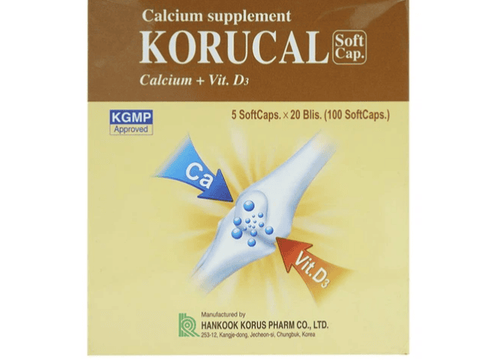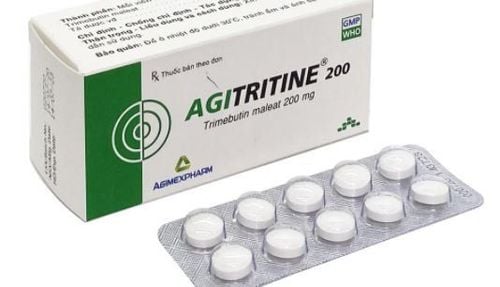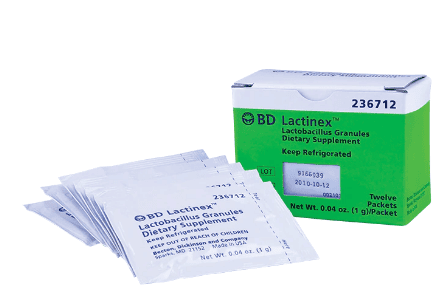This is an automatically translated article.
Crohn's disease is a chronic inflammatory disease of the digestive tract that can affect people of all ages. The disease currently has no specific treatment, so it is mainly used supportive measures and friends to help overcome the disease.
1. What is Crohn's disease?
Crohn's disease is a chronic intestinal condition that causes the lining of the digestive tract to become inflamed and makes it difficult to digest food, absorb nutrients, and cause frequent bowel movements. The disease can appear in any position of the digestive tract, due to inflammation of the digestive tract, when you are sick, you often lose weight quickly, due to reduced absorption of food consumed.
The cause of Crohn's disease is still unknown, there are many theories that the disease can be caused by diet, immune system, genetics, psychological factors...
When suffering from the disease Crohn's disease you may experience symptoms such as unexplained fever, abdominal pain, weight loss, frequent bowel movements ... need to be detected and treated to help control inflammation. Because it can cause some complications such as intestinal obstruction, anemia, fistula in the digestive tract, increase the risk of gastrointestinal cancer ...
2. Is Crohn's disease curable?
Currently, there is no specific cure for this disease, but it is possible to control symptoms and reduce the risk of complications with Crohn's disease treatments, including:
Anti-inflammatory: Anti-inflammatory drugs should be used to reduce the severity of inflammatory bowel disease. Immunosuppressive drugs: Medicines that stop the immune system from attacking your gut. Antibiotics: May be used to prevent secondary infections and when gastrointestinal fistulas are present. Diarrhea: Diarrhea is a condition that occurs when you have an illness, it can cause dehydration and electrolyte loss. Use drugs to reduce fatigue and limit dehydration, electrolyte and nutritional loss for patients. Pain relievers (usually acetaminophen): Medicines are used when the patient has abdominal pain.
3. Therapies to improve Crohn's disease
In addition to drug treatment, you can also apply complementary therapies to improve Crohn's disease, therapy that can help reduce the discomfort associated with Crohn's disease. The following six complementary therapies have been shown to be effective in managing Crohn's symptoms, including:
Vitamin supplements Crohn's disease affects the body's ability to absorb nutrients . Taking vitamin supplements helps alleviate some of the vitamin and mineral deficiencies associated with Crohn's.
Some people with Crohn's may develop anemia complications from blood loss from inflammatory bowel disease. Iron supplements, either orally or intravenously as directed by your doctor, are an effective way to control anemia.
If you have Crohn's, you may also need to consider taking a vitamin D supplement. Vitamin D has many effects on the body, helping to metabolize calcium and keep bones healthy. Both calcium and vitamin D can be affected by Crohn's.
Also, some people with Crohn's often develop ileitis, which affects the lower part of the small intestine, where vitamin B12 is absorbed.
Probiotics Probiotics are a form of good bacteria that can help maintain balance in the gut. They prevent harmful bacteria from overgrowing and causing digestive problems.
More scientific evidence shows that taking probiotics can help people with Crohn's disease go into longer-lasting remission. Probiotics also help prevent a condition called pouchitis that often occurs after colon surgery.
Probiotics are a type of bacteria that are generally considered safe. They are available in a variety of commercially available forms including capsules and solutions and are found in foods such as yogurt, miso, and tempeh.
Turmeric is a spice that is also used as a medicine in many countries around the world. Due to the anti-inflammatory, astringent and antioxidant properties of one of the main compounds, curcumin. As a result, turmeric is often used as a complementary treatment for people with Crohn's disease.
Turmeric can be taken orally in pill form as a supplement or taken in powder form by mixing with water. Turmeric can also be cooked directly onto food, but this method often may not provide enough curcumin to get the desired anti-inflammatory effects.
Turmeric is also considered safe to use for people with Crohn's disease. In some cases, excessive use can cause gastrointestinal symptoms such as bloating and diarrhea.
Acupuncture Acupuncture is a therapeutic method used in many countries. When acupuncture, people use thin needles made of many different materials, inserting into muscle acupoints on the body. From the point of view of traditional medicine, acupoint is a point on tendons and muscles where qi and blood work in and out.
Research has shown that acupuncture can be helpful in the treatment of Crohn's disease. The effects of acupuncture c help regulate autonomic nervous activity, reduce inflammation, and reverse tissue damage.
When acupuncture you may have slight bleeding and shallow hematoma around the point. These are the side effects of acupuncture, but they are usually not serious.
Relaxation measures Practicing relaxation techniques such as yoga and meditation can also be beneficial for people with Crohn's disease. Because people with Crohn's disease often have high rates of stress and anxiety, adopting relaxation practices can help prevent stress and anxiety from worsening symptoms and triggering a flare-up. inflammatory phase of the disease.
You can go to yoga classes or you can practice yoga at home with instructions.
Exercise Regularly Regular exercise is always recommended and has also been shown to help with Crohn's disease. Not only does exercise help improve general health, but it can also increase bone mineral density and reduce recurrence rates for certain symptoms of the disease.
In addition, exercise increases the release of IL-6, a protein-coding gene that can increase peptides involved in the repair of intestinal damage.
Although most forms of exercise are considered safe, some physical activity can worsen certain symptoms of Crohn's, such as fatigue, joint pain and diarrhea. Talk to your doctor before starting any new exercise routine. In addition, you should gradually increase physical activity, do not do heavy exercises at the beginning.
Chronic inflammatory bowel disease caused by Crohn's disease has no specific treatment nor cure. Therefore, it is important to take your Crohn's disease medications as directed and combine additional measures to better control the disease.
It's best when you have Crohn's disease, you should talk to your doctor to be checked to have the best professional advice about your current health status.
Please dial HOTLINE for more information or register for an appointment HERE. Download MyVinmec app to make appointments faster and to manage your bookings easily.
Reference link: healthline.com












